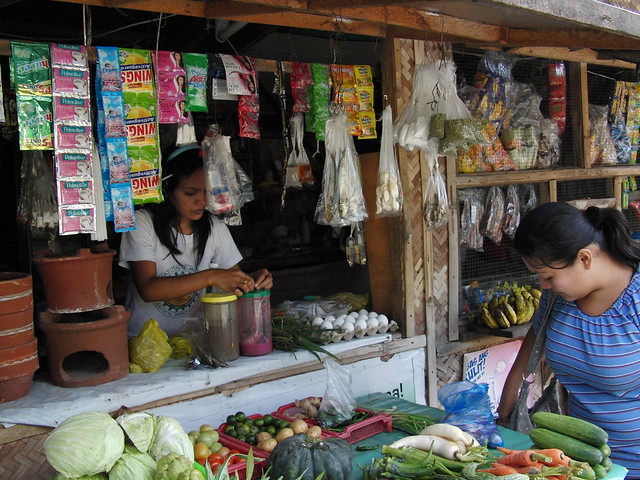
I co-founded a web development agency several years ago with a Filipino American buddy of mine. While talking about some industry news one day, he wondered out loud why there weren’t more Filipino American entrepreneurs. “I read about Chinese American, Taiwanese American, Japanese American, and Vietnamese American entrepreneurs in the news all the time. But I have yet to see any Filipino Americans.”
We latched onto this topic and did a few Google searches. Perhaps this was our own ignorance and there are plenty out there that just haven’t made it into the general business news. But our searches were fruitless. We found plenty of Filipino entrepreneurs in the Philippines, but no Filipino American entrepreneurs. Though we started our searches in the high tech industries, we expanded them to include restaurant owners and shopkeepers, anyone who owned his/her own business, such as this article referred to me by 8Asian’s very own Jeff.
Next, we went through our own contact lists. He knew of only one other who also owns his own business. And that was it. “Why are there so few of us?” he asked. We didn’t know for sure, so I decided to dig deeper.
In the last few months, I’ve tried reaching out to colleagues to look for and interview Filipino American entrepreneurs. I even reached out to my co-founder’s friend. Sadly, none of them ever came through for an interview; perhaps they were all too busy. Then fate gave me a hand. This past weekend, I randomly met a Filipina American who co-founded a large IT services company with her husband. I spoke with her at length and got some great insights.
Below is a list of possible reasons given to me by my co-founder, the IT services business owner I met, and Jeff. Please note that there’s no scientific research to back any of this up; I simply couldn’t find any.
- Lack of press. Perhaps there are a lot of Filipino American entrepreneurs and they simply aren’t getting much press from both the mainstream media and social media. Or, they are being reported in non-English articles that don’t show up in English web searches. This article could all be a moot point because I simply can’t access the right information.
- Less tolerance for risk. Everyone I spoke with cited this reason. They believe there’s a culture of risk-avoidance in Filipino culture, especially from older generations. Failure is seen as a major taboo. “Add to that Filipinos’ love of criticism of any apparent flaw,” added Jeff, “and you get Filipinos who would rather get a job working for someone else rather than risk starting a business that could fail.”
- Less emphasis on education. Jeff said this best: “Many businesses, particularly tech businesses, are started up by professors, researchers, and grad students, of population which contains few Filipinos.” Also, “Filipinos tend to be conformist and have a deep anti-intellectual streak. As an example, ‘pilosopo’ (or philosopher) is considered an insult.”
- Lack of historical business owners. During the colonial history under the Spanish, most businesses in the Philippines were owned by ethnic Chinese Filipinos (Chinoys) or Spanish rather than Filipinos. With a lack of role models and an absent supportive environment, a culture of entrepreneurship never quite flourished. This may be changing, though most of the well-known Filipino restaurants were started by Chinoys or Spanish, like Goldilocks and Jollibee.
- Lack of persistence. There’s a culture of great initial enthusiasm, followed by a rapid drop in interest. Someone even pointed me to the Tagalog expression, ningas kugon, meaning “the flame of dry kugon grass, which burns hot and furious at first but rapidly burns out.”
- Strong family obligations. The family is the most important unit in Filipino culture, as is the obligation to put them ahead of anything else, especially a risky entrepreneurial venture that may require a significant investment of time, focus and money. In this sense, starting a business is seen as a selfish move, rather than one that is ultimately best for the family.
- Work visa restrictions Many Filipino immigrants arrived to the United States as nurses and Navy crew members on work visas. Those immigrants risked deportation if they left their employers to go start a business, therefore being an entrepreneur was hardly an option. ADDED 5:00pm PDT, HT TienVNguyen
Do you know of any other possible reasons why there are so few Filipino American entrepreneurs? Leave a comment and let me know.
I expect this post to be unpopular. Everyone I spoke with had strong feelings about this, as well as strong viewpoints. One criticism of this list is that other Asian American cultures share some of the traits, such as strong family obligations. Another is that this could apply to other Pacific Islanders as well, which I can certainly see. Others found this list offensive, and I apologize if this comes across as an insult to anyone. That is not my intention. Some of these items come from two books on Filipino American psychology by Kevin L. Nadal, PhD.
It appears that serious research has yet to be done on this topic. I don’t have the resources or know-how to do such a study myself, but my hope is that this post prompts someone to go do one – perhaps as a dissertation. If you do, please let me know. My co-founder and I, as well as many others I’d imagine, would be very interested in your conclusions. My co-founder has even considered forming a Filipino American entrepreneurship association to foster such a community.
What do you think? I would love to hear your feedback. Thanks!
[Flickr photo credit: burgermac]







